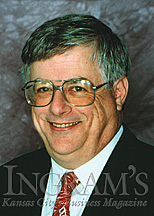technology
by John Voeller
Prescription for a Depressed Tech Market

Technology is not a new word or a new ability of mankind. Technology began
when humans first took basic materials and combined them to create something
not found in nature. The first alloy of metals, the first fastener, the
first light bulb and the first engine were the technology of their respective
eras. And in each case, there was a euphoria that captured imaginations,
investors and young initiates who decided to focus their lives on something
they knew would change the world…and often did…for a while.
The advance of technologies through modern history has been an exciting
series of cycles of discovery, infatuation, maturation and replacement
by the next big thing. So what happened to the next excitement?
Some would suggest that we abused it…that we abused those who supported
our addiction to technology’s early cycle excitement by providing
venture capital without collateral or investment even in the face of massive
losses. The promises of the chip, the PC, the Internet, the cell phone
and the genome were all real, and most of us directly or indirectly benefited
from their cycles. Yet we all knew each would reach a point of satisfaction
or saturation when everyone who could participate did, and the cycle would
mature and our attentions would divert to something new.
In reality, the cycles continue and in fact are accelerating. Genomics
is almost trivial in the face of protenomics, electronic computers are
mundane compared to photonic synthesims, and cell phones are archaic when
we envision self-assembling pervasive networks of intelligent devices.
The future is as amazing and brilliant and bright as it has ever been.
For hundreds of examples, read Faith Popcorn’s Dictionary of the
Future. All these approach us for inspection, but we have lost one of
our key abilities to embrace the next cycle…trust.
What we have lost for now is not trust in the future or trust in technology’s
adventure or trust that good things can happen. We have lost trust in
those we believed were the makers of our excitement, the chemists of our
addiction. Too many of them promised without commitment to deliver, and
too many exaggerated their abilities and successes in order to keep our
attention on their cycle. But even this is not what has stalled us.
The real loss is trust in ourselves. We have lost trust in our judgment.
Many knew full well how silly or absurd it would be to invest in a company
with several years of operation and continuous quarters of large losses,
but the excitement of the early Web cycle was addictive. Many knew how
imprudent it was to hold stock in a company with debt loads many times
projected future annual revenue, but the early fiber communications cycle
was too much fun.
The Internet added a new ingredient by creating a mechanism to elongate
the early portion of its cycle so we could enjoy the euphoria longer as
we waited for enough people to sign up to make the e-biz plays profitable
when a detailed analysis by dispassionate observers could show how quickly
many such services would become commodities with minimal margins shared
by too many players. When analysts finally started talking frankly about
such issues instead of "going along" with the euphoria, their
realism shook some and embarrassed others. Common sense became fashionable,
skepticism became a sport, and our trust was put away for another day.
For the markets to see beyond the S&P, those who can create or support
the next cycle must bring us images that allow us to unwrap our trust
and tune it with our common sense. The journey may not be as extreme and
the peak of the cycle not as high as before, but the benefits to our imaginations
and our economy will begin to fuel the next era of technology to help
us deal with our increasingly complex world. Tomorrow is delivered every
day, but we must show up and participate to make a history worth remembering.
John Voeller is senior vice president, chief knowledge officer
and chief technology officer with Black & Veatch. He can be reached
by phone at 913.458.3799 or by e-mail at voellerjg@bv.com.